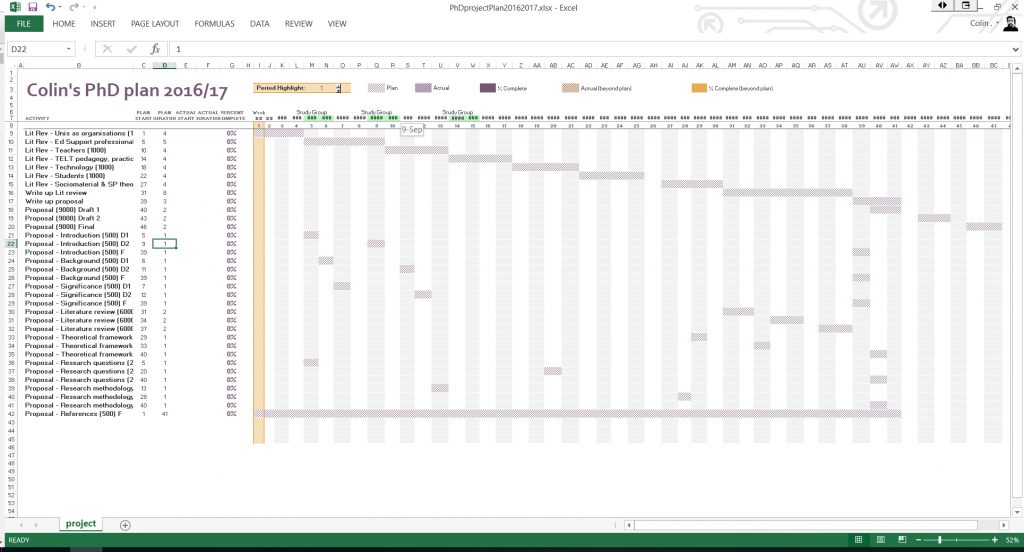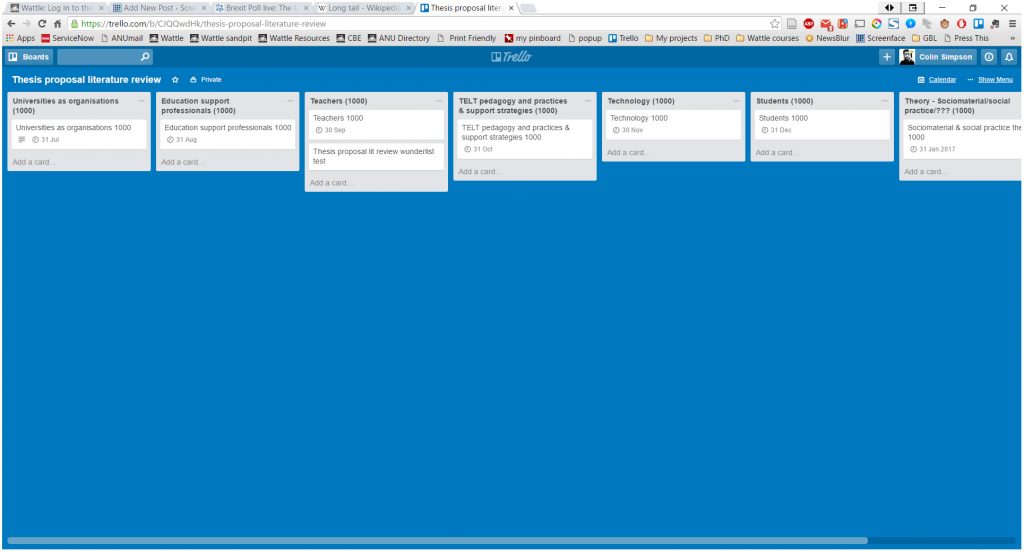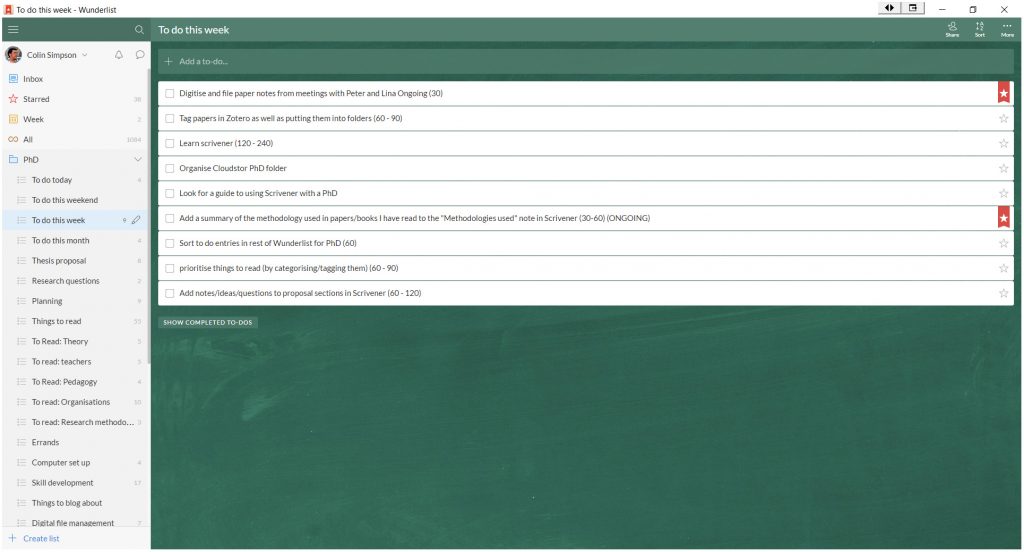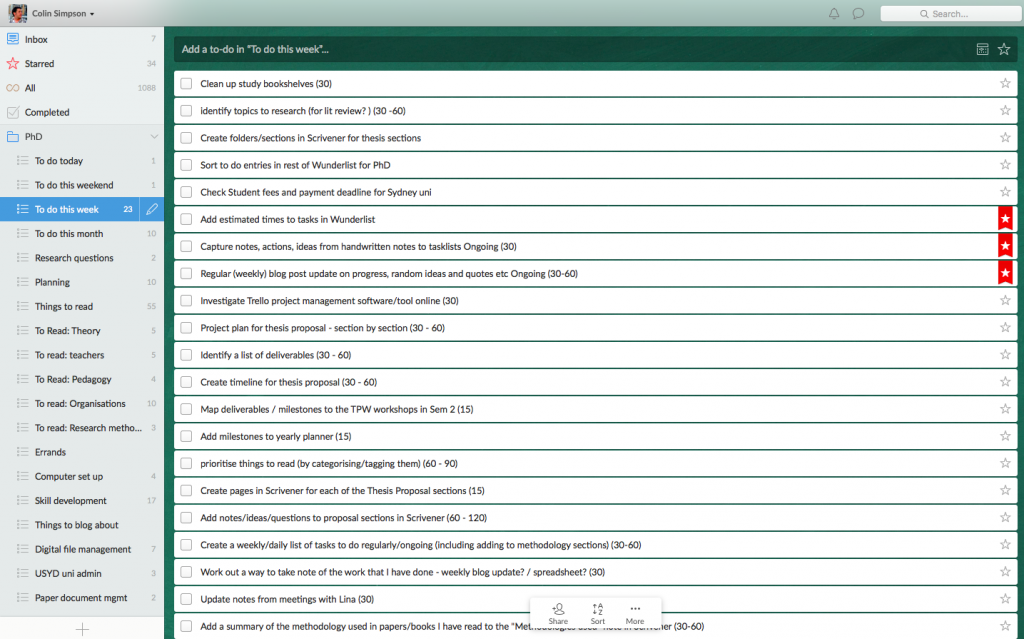This blog post will probably be of interest to maybe five other people (including my Mum) but it’s part of a process that I’ve decided on for tracking what I’m doing and maintaining some accountability, so here we are. It’s kind of the beauty of blogging – the whole “long tail” thing – that ultra-niche voices can still have a platform. (And in defense of my own posts, this will be far from the least coherent post that I have read this week)
So in my last post I mentioned that I’m putting processes and systems in place to help me work better on my PhD. (Well, my PhD proposal I should say – this has to be approved before I actually embark on the proper research itself). As I’ve mentioned, my topic is currently very broad but I expect that over the next year it will come into a much sharper focus. The absence of deadlines however has meant that I’ve felt that I’ve been drifting from one shiny topic to the next. People keep telling me that this is by far the best stage of a PhD and that this opportunity will probably never come again but there are still things that I need to get done in this time and having a clearer vision of what they are and when they should be done soothes my soul.

Managing all three seems a little like triple handling but the spreadsheet should be mainly just about denoting progress now and I like the whole-year perspective that it offers. IFTTT lets me automatically create Wunderlist tasks when I add them to a Trello card so this should also simplify matters.
(That’s Trello – it looks pretty plain at the moment but has given me a much needed roadmap for the different topic areas that I plan to investigate month by month)
The July topic – Universities as organisations – aligns well with both a (workplace) university strategic review as well as an upcoming ACODE University Benchmarking event that I’m hoping will offer some tangible insights into the ‘state of the actual’ in TELT practices. It also ties to the ongoing discussion/review process that I’ve been leading of ed tech and TELT in my university and the associated governance structures. (The powers that be are expecting a report with some recommendations in early August.)
The overall to-do list has gotten a little smaller -for now – though it needs updating and there are some ongoing tasks tied to digitising the myriad handwritten ideas and questions that come to me pretty much day and night now.
All this aside, it’s still hard not to feel that I haven’t made a lot of progress in the last few weeks – I guess it would be more accurate to say I haven’t made as much progress as I would’ve liked in terms of reading and writing things but I feel far more ready to do this in a more effective and productive way now.
On a day to day level though, the reading that I’ve been doing and the ideas that I’m starting to synthesise are really starting to feed into my professional practice and are giving me more confidence in the decisions and plans that I’m putting forward.
So let’s see how that goes.



